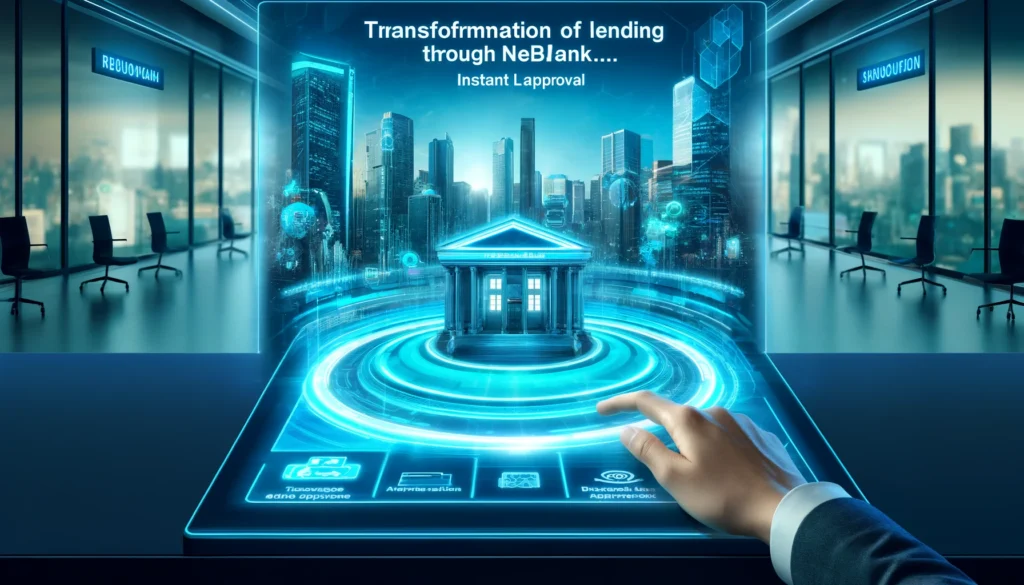The lending industry is undergoing a massive transformation, thanks to the rise of neobanks. These digital-only banks are leveraging technology to offer instant loans, streamline credit checks, and provide personalized lending solutions. When it comes to Neobank instant loans, gone are the days of lengthy paperwork and weeks of waiting for loan approvals. In 2025, neobanks are making borrowing faster, easier, and more accessible than ever before.
In this blog post, we’ll explore how neobanks are revolutionizing lending, the fintech lending trends driving this change, and what it means for borrowers and the financial industry as a whole.
The Rise of Neobank Lending
Traditional banks have long dominated the lending industry, but their processes are often slow, cumbersome, and inaccessible to many. Neobanks, on the other hand, are built for the digital age, offering:
- Instant Loan Approvals: Get approved for loans in minutes, not weeks.
- Simplified Applications: Apply for loans entirely online with minimal paperwork.
- Personalized Offers: Receive loan offers tailored to your financial profile.
- Inclusive Lending: Use alternative data to assess creditworthiness, making loans accessible to more people.
How Neobanks Are Revolutionizing Lending

1. Instant Loans
Neobanks are redefining speed in lending. With neobank instant loans, borrowers can apply for and receive funds within minutes. This is made possible by:
- AI-Powered Underwriting: Algorithms analyze your financial data in real time to assess risk and determine eligibility.
- Automated Processes: No manual reviews mean faster approvals and disbursements.
Example: Neobanks like Revolut and N26 offer instant personal loans with competitive interest rates and flexible repayment terms.
2. Alternative Credit Checks
Traditional banks rely heavily on credit scores, which can exclude many borrowers. Neobanks use digital banking credit checks that consider alternative data, such as:
- Utility bill payments.
- Rent history.
- Social media activity.
- Spending habits.
This approach allows neobanks to serve underserved populations, such as young adults and immigrants, who may not have a traditional credit history.
3. Personalized Loan Offers
Neobanks use data analytics to offer loans tailored to your financial situation. For example:
- Dynamic Interest Rates: Borrowers with strong financial profiles may qualify for lower rates.
- Flexible Repayment Terms: Choose repayment schedules that align with your income and expenses.
Example: Chime offers personalized loan options based on your spending and savings habits.
4. Transparent Fees and Terms
Neobanks are known for their transparency. Unlike traditional banks, which often hide fees in fine print, neobanks clearly outline:
- Interest rates.
- Fees (or lack thereof).
- Repayment terms.
This transparency builds trust and helps borrowers make informed decisions.
Fintech Lending Trends in 2025
The lending industry is evolving rapidly, and neobanks are at the forefront of these changes. Here are some fintech lending trends to watch in 2025:
1. AI and Machine Learning
AI is transforming lending by enabling faster approvals, more accurate risk assessments, and personalized loan offers.
2. Blockchain for Secure Transactions
Blockchain technology is being used to enhance the security and transparency of lending processes.
3. Peer-to-Peer (P2P) Lending
Neobanks are facilitating P2P lending platforms, allowing individuals to borrow directly from investors.
4. Sustainability-Linked Loans
Some neobanks are offering loans with lower interest rates for eco-friendly initiatives, such as purchasing electric vehicles or installing solar panels.
For more insights into fintech lending trends, check out McKinsey’s fintech lending reports.
Benefits of Neobank Lending
1. Speed and Convenience
With instant approvals and online applications, neobanks make borrowing quick and hassle-free.
2. Inclusivity
By using alternative data, neobanks are making loans accessible to a wider audience.
3. Lower Costs
Neobanks often have lower overhead costs, allowing them to offer competitive interest rates and fewer fees.
4. Better Customer Experience
User-friendly apps and personalized services make borrowing with neobanks a seamless experience.
Challenges and Risks
While neobanks are transforming lending, there are some challenges to consider:
1. Regulatory Compliance
Neobanks must navigate complex regulations, which can vary by country and region.
2. Data Privacy
Handling sensitive financial data requires robust security measures to protect against breaches.
3. Over-Reliance on Technology
Technical glitches or system failures could disrupt lending processes.
How to Choose the Right Neobank for Lending

If you’re considering borrowing from a neobank, here are some factors to consider:
- Interest Rates: Compare rates to ensure you’re getting the best deal.
- Fees: Look for neobanks with no hidden fees.
- Repayment Terms: Choose a loan with flexible repayment options.
- Customer Reviews: Check reviews to gauge the neobank’s reputation and customer service.
For a detailed comparison of loan options, visit LendingTree’s loan comparison tools.
The Future of Neobank Lending
As technology continues to evolve, neobanks will play an even bigger role in the lending industry. Here’s what to expect in the coming years:
1. Hyper-Personalization
AI will enable neobanks to offer loans tailored to individual financial goals and behaviors.
2. Integration with Other Financial Services
Neobanks will bundle loans with other services, such as insurance and investment products.
3. Global Expansion
Neobanks will expand into new markets, offering cross-border lending solutions.
Conclusion
Neobanks are revolutionizing the lending industry by offering instant loans, using alternative credit checks, and providing personalized, transparent services. Whether you’re looking for a personal loan, a business loan, or a sustainable financing option, neobanks make borrowing faster, easier, and more accessible than ever before.
To stay ahead of the curve, explore the lending options offered by leading neobanks and take advantage of the fintech lending trends shaping the future of finance. For more insights, visit McKinsey and LendingTree.
For more tips and insights on managing your finances with neobanks, check out our post on Neobank vs. Traditional Bank: Which is Right for You?



